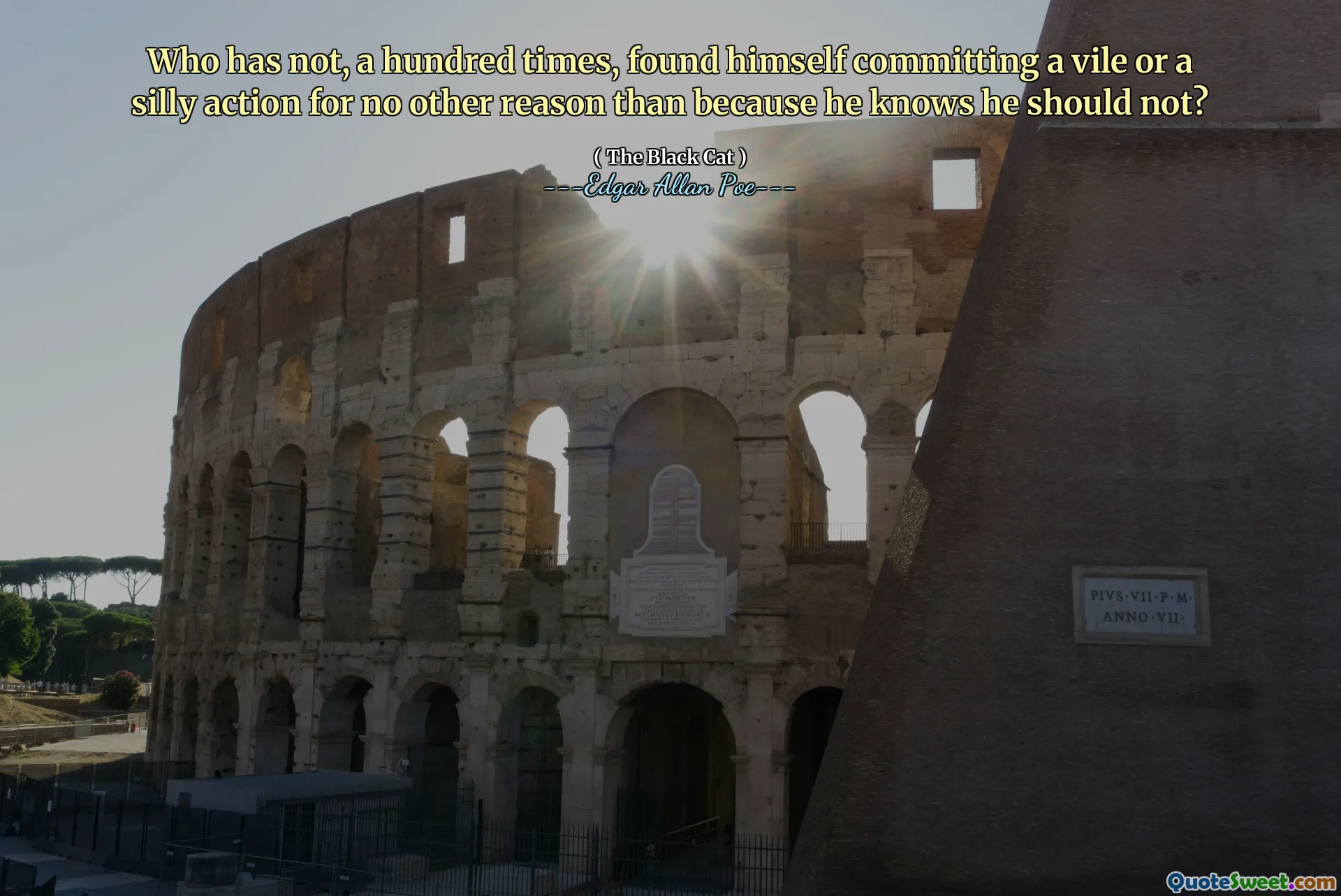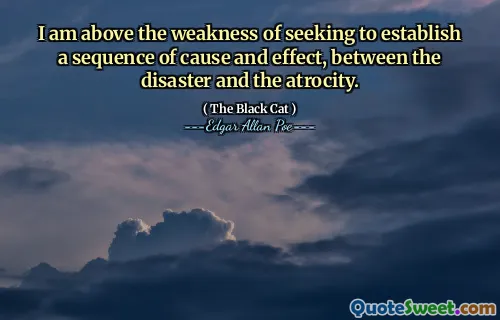
Who has not, a hundred times, found himself committing a vile or a silly action for no other reason than because he knows he should not?
In Edgar Allan Poe's "The Black Cat," the author explores the complex nature of human behavior, particularly the tendency to engage in actions that contradict one's moral compass. The quote reflects a universal experience where individuals, despite knowing better, succumb to impulses that lead them to act in foolish or reprehensible ways. This internal conflict highlights the struggle between willpower and desire, suggesting that self-awareness does not always translate into self-control.
Poe’s observation speaks to a deeper psychological phenomenon where the awareness of prohibition can inadvertently trigger rebellion. The speaker acknowledges a common human flaw: the allure of the forbidden. This creates a paradox where the very recognition of an action as wrong can intensify the desire to commit it, illuminating the darker aspects of human nature that Poe often delves into in his works.










